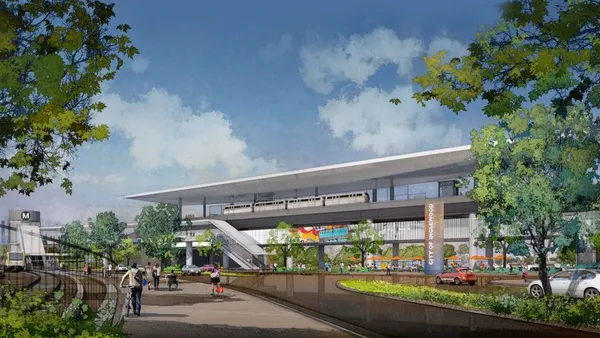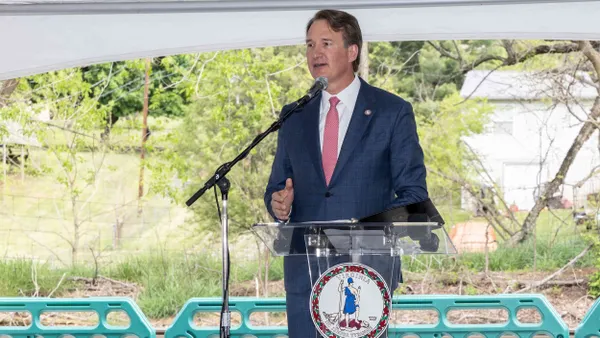UPDATE, June 13, 2018: Ford Motor Company announced Monday that it has purchased the iconic Michigan Central Station in Detroit, a 500,000-square-foot, 18-story vacant depot that closed in 1988, according to The Washington Post. The station is just a half-mile from a renovated clothing factory recently purchased by Ford.
While the details of the building's redevelopment are not yet clear, the purchase is said to be the latest step in Ford turning the city's Corktown neighborhood into a campus for autonomous vehicle (AV) and electric vehicle (EV) development.
Dive Brief:
- Ford Motor Company will move its electric and self-driving vehicle businesses from its corporate headquarters in Dearborn, MI into Detroit, according to The New York Times and others.
- More than 200 employees will move to the site — a renovated clothing factory — near downtown Detroit. The company calls the group "Team Edison."
- The new AV and EV facility is expected to be operational next year.
Dive Insight:
Ford was founded in Detroit in 1903, but its headquarters moved to nearby Dearborn — the suburb where Henry Ford lived — in 1928 and it has been there ever since. Various spots throughout the Detroit area and Michigan house different Ford manufacturing and operations centers, but the company has had minimal operations within the city itself.
To some, this is simply a symbolic shift, considering that the Dearborn headquarters is only eight miles from the Corktown neighborhood where the new facility will be built, and that much of Michigan is economically dependent on the automotive industry. Team Edison's facility will not be far from GM's headquarters in Detroit.
The move isn't entirely a surprise considering an announcement from late last year that Ford would completely renovate its aging properties in Dearborn during a 10-year process. It decided to gather the 30,000 employees spread throughout 70 buildings in Dearborn and consolidate into two main campuses. The plan involves demolishing some buildings and updating others to make a more walkable, sustainable and aesthetically pleasing campus. It will be reminiscent of Silicon Valley tech companies with sports and health facilities for employees, as well as e-bikes and autonomous shuttles.
Although moving AV and EV operations only eight miles away seems symbolic, it also could add real business value as well. Detroit's urban center could offer Ford employees a better understanding of urban mobility needs and challenges. Urban areas also present more of a draw for young people, which would help Ford to hire young talent with fresh ideas.
Beyond benefits to Ford, the move certainly will benefit Detroit, which has been undergoing a major transformation since emerging from bankruptcy in 2014. Ten years ago the city's office vacancy rate was 30%, but now it's 7%. The city has particularly experienced changes in its central business district, as well as a 50-block sports and entertainment hub between the downtown and midtown areas. Moving Team Edison into the city could provide much needed upgrades and modernizations to both Detroit and Ford.











